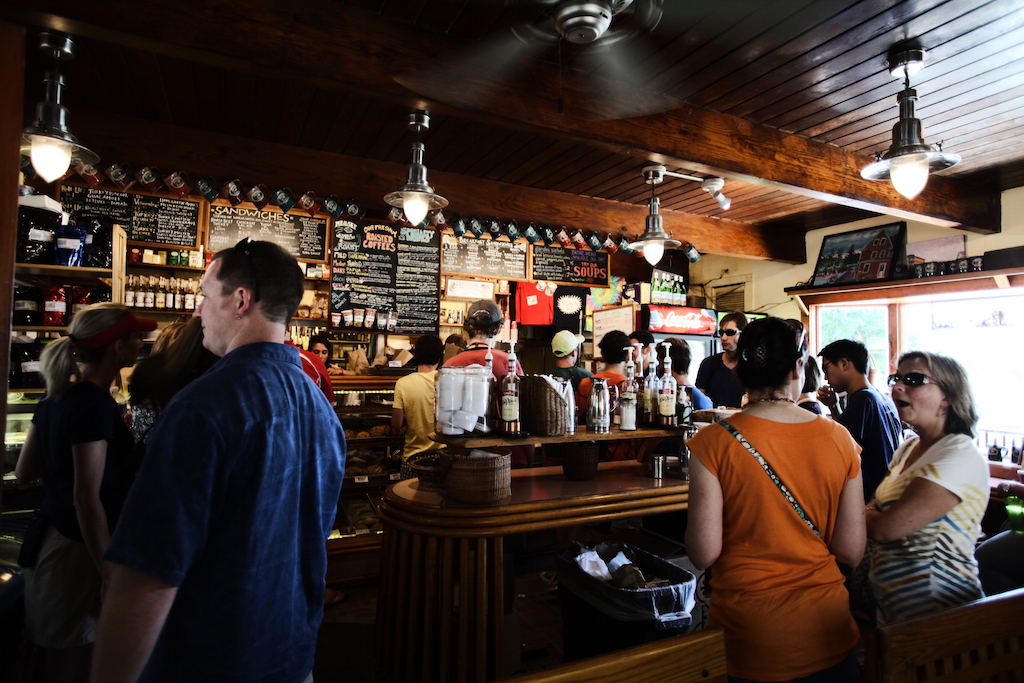Social media. Every brand needs it – whether you’re a mom and pop restaurant or a multinational retailer. That much should be obvious! But did you know about social media’s impact on local SEO and digital marketing?
Here’s why: your local and digital marketing tools work in harmony to find the right customers – and ensure they find you. More than ever, customers are turning to social media to find the products and services they need. 54% of social media users research products on social platforms. Neglecting your social media presence means these potential consumers are missing out on your products and services – and your business misses out on a loyal customer.

Social media’s impact on local SEO is often underestimated. Social has evolved, and nowadays it’s become almost as easy to search for a restaurant on Instagram as on google. As always, Synup strives to partner with businesses in pursuit of their business goals. And lately, growth goes hand-in-hand with social media presence. That’s why we’ve compiled our best practices to encourage your local-social growth. Read on for more!
Build a consistent online presence
Did you know that social media can contribute to your Google ranking? That’s right – social media’s impact on local SEO goes beyond posts on a platform. The more your business’ information and name pop up online, the more Google will push out your pages. Adding your NAP (Name, Address, and Phone Number) to your socials helps Google’s algorithm confirm that your business information is correct. Why? Every time your NAP is mentioned on websites, maps, listings, reviews, and social media sites, you gain points to rank higher in local search. As always, consistency is key!
Supporting local SEO
Local SEO is essential for industries like hospitality, dining, and entertainment – and for any business with brick-and-mortar shops. Wherever a customer is searching, you want your business to appear on page one.

When a customer searches for something “near me,” social media’s location functions help your business rank higher. Why? Proximity is one of the key ranking factors for search results. So the more your NAP (name, address, phone number) appears across the internet, the easier it is for Google to pinpoint your business for potential customers:
- Social media profiles are another place to publish your NAP for Google to check
- You can use local hashtags, local keywords, and location tags on social media
Social media brings your business increased visibility and traffic, which is key for ranking and local SEO. Small businesses have a distinct advantage when it comes to coordinating local SEO and social media efforts. For a small business, typically, the same person is in charge of all digital marketing efforts (social media, SEO, listings management, etc.). For SMBs, social media and local SEO are typically under the jurisdiction of different departments. Synchronizing across departments is a bit trickier – but it is absolutely necessary for ensuring your customers find and interact with your brand.
Building your social media to support local SEO
Social media offers a unique opportunity for your business to interact with customers. Unlike responding to questions or reviews, social media can be fun! But your social pages aren’t just for promoting your business and improving SEO. Social media is essential to:
- build brand recognition
- share valuable and memorable content
- earn trust
- showcase your expertise
- drive targeted traffic to your business
Here are just a few of the benefits from devoting time to your business’ social media presence:
Content amplification
Help your content get discovered and enjoyed by more people, especially when it’s not on page one of search results
Brand awareness
Build your online presence through exposure, so that when your name appears in the search results it’s familiar
Trust and credibility
Support your reputation within your industry, especially when someone is researching you online because of a referral
Link building
The more places your content can be discovered, the more chance that it will earn SEO-friendly inbound links (backlinks) when cited on other websites
Social media’s impact on local SEO
Increase your local presence and ranking through business profile data and customer reviews.
Your company social media profiles appear in searches for your business, often right under your website. they’re a great way to take up that whole first page and leave no room for competitors
Search engines index tweets. When customers search for your business, they’ll see your Twitter account. Searching for other key words or phrases related to your business can also show your tweets. Google may also start indexing video posts from TikTok and Instagram. This can lead to faster indexing and ranking opportunities!
Developing a local-social strategy is key for growing your business in 2022. Over half of consumers use social media to research products and services. And social profiles often show up on the first page for Google searches! That’s enough of a reason to focus on your social pages – especially Twitter and Facebook, which are indexed by Google.
Facebook for local SEO
Facebook has an incredible platform for businesses, enabling bookings, orders, and messages through business Facebook pages.

Ensuring that your Facebook business page is updated, accurate, and active is essential, but there are a few things you can do to make your page even better:
- Fill in accurate, updated info on your page’s about page. Be informative and specific, as the about section informs where you rank for certain keywords
- If relevant, add services to your Facebook page. Your services and descriptions will pop up on Google – so make sure you use relevant keywords and describe your business well.
- Manage Facebook reviews. The reviews you get on Facebook are displayed in Google search results, so ensure you manage Facebook, Yelp, and Google reviews properly. While Facebook reviews aren’t a ranking factor (unlike Google Business reviews), seeing reviews in search results can sway a person’s decision to click on your brand.
- Add a call to action button to drive conversions
- Link out to your website. Facebook offers tons of opportunities to drive traffic to your site and promote relevant keywords.
Facebook is a great platform for local businesses. With a huge user base and reviews that are indexed by search engines, Facebook pages are essential for all businesses. Think of your Facebook page as an extension of your website. It should feature your name, phone number, address, store hours, and any additional contact information. Customers can even message you straight from your page!
Keeping your page updated with promotions, interactive posts, and details about your services will help customers feel confident when they choose your business. Plus, Facebook makes it easy to reach new customers. When existing customers “like” your page or posts, the interaction shows up in their friends’ newsfeeds as well, making Facebook a great way to organically increase traffic and brand recognition.
Instagram for local SEO
Instagram offers tons of opportunities to promote your business and drive traffic to your store! While it admittedly has limited SEO function (until Google starts indexing posts), Instagram still serves as a huge traffic generator and a great way to build your brand. To optimize your business Instagram:
- Use relevant keywords in your bio, and ensure that captions have relevant keywords and hashtags. A great way to promote your business is to incorporate location-specific hashtags (like #nyceats for a New York City restaurant)
- Enable Instagram shopping, so customers can purchase items directly from your page
- Link back to your website (ensure that it is mobile-friendly)
- Encourage in-person tagging to drive visibility
Short copies and appealing visuals are best for Instagram. Make sure you utilize the “story” feature as well to promote daily specials or feature customer posts. If you’re short on content, Instagram is a great place to repost consumer-generated content. Whether customers are posting stories or tagging you in posts, reposting is a great way to get content and interact with customers! It’s a win-win.

When you write captions, be geo-specific. Mention your location in your captions. Tag it and use relevant hashtags so you can easily be found on IG search. You can also mention your contact details (NAP) in your captions for Google to pick up.
To creatively optimize your web traffic through Instagram, make sure the short business description in your bio includes your website address. Also ensure that your bio includes your address, contact information, and a relevant description of your business!
Twitter for local SEO
Like Instagram, Twitter expands your business’ reach through appealing visuals and captions. Google indexes tweets, too, so using relevant hashtags, keywords, and location-specific phrases will help more customers see your content through search. Twitter is second to Facebook as a boon for local SEO – here’s how to optimize your Twitter:
- Use relevant hashtags and keywords in your tweets to ensure that potential customers find you. Google indexes tweets, too.
- Pin a tweet to your profile with your latest promotion or best-performing tweet.
- Interact with customers’ tweets and follow their accounts. Customers who feel they have a personal connection with a brand on social media are 6x more likely to buy!
- Your bio should include your website link and a relevant description of your business. Also include NAP details!
- Retweet posts from customers that mention your business
- Create interactive posts like polls or asking questions
- Highlight user-generated content
- Link back to your website and other socials
Twitter is great for short-form content and interacting in a short and sweet way with customers. When you write tweets, be geo-specific and include hashtags. This helps Google index your tweets for customers searching for businesses like yours.

To creatively optimize your web traffic through Twitter, make sure the short business description in your bio includes your website address. Also ensure that your bio includes your address, contact information, and a relevant description of your business!
TikTok for local SEO
While TikTok is a new player on the scene, it’s important to establish good practices to boost local SEO as Google indexes videos, posts, and more.
- Use relevant keywords in your bio, and ensure that captions have relevant keywords and hashtags. A great way to promote your business is to incorporate location-specific hashtags (like #nyceats for a New York City restaurant)
- Use the same brand and location hashtags across Twitter, Instagram, and TikTok
- Link back to your website and other socials
- Pin your best-performing content
- Create videos that are relevant for your consumers. Google will potentially start indexing videos from Instagram and TikTok, so put your best foot forward!
TikTok is a great platform to showcase your brand’s store and user experience – and communicate with customers. It’s great for tech startups and local businesses alike, and has the potential to generate a lot of buzz. If your business is trying it out, incorporate our local SEO best practices to maximize TikTok’s effect.

Great social media is great for local SEO
Remember that the best place to start is just being consistent. 71% of consumers who have had a positive experience with a brand on social media are likely to recommend the brand to their friends and family, and consumers are 6x more likely to buy from a product page that includes pictures from social media.
Fine-tuning your social media for local SEO should be a matter of “when,” not “if.”
The tips above go hand in hand with the best practices of social media for local businesses. Although these small changes to your social presence might not seem like much, social media can make a big difference when it works in tandem with local SEO.
After all, anything you can do to make your business more discoverable is a plus, right? By sticking to the principles above, you can create more opportunities for customers to find you via search and social for the long-term. Social media’s impact on local SEO makes a great social presence that much sweeter.


